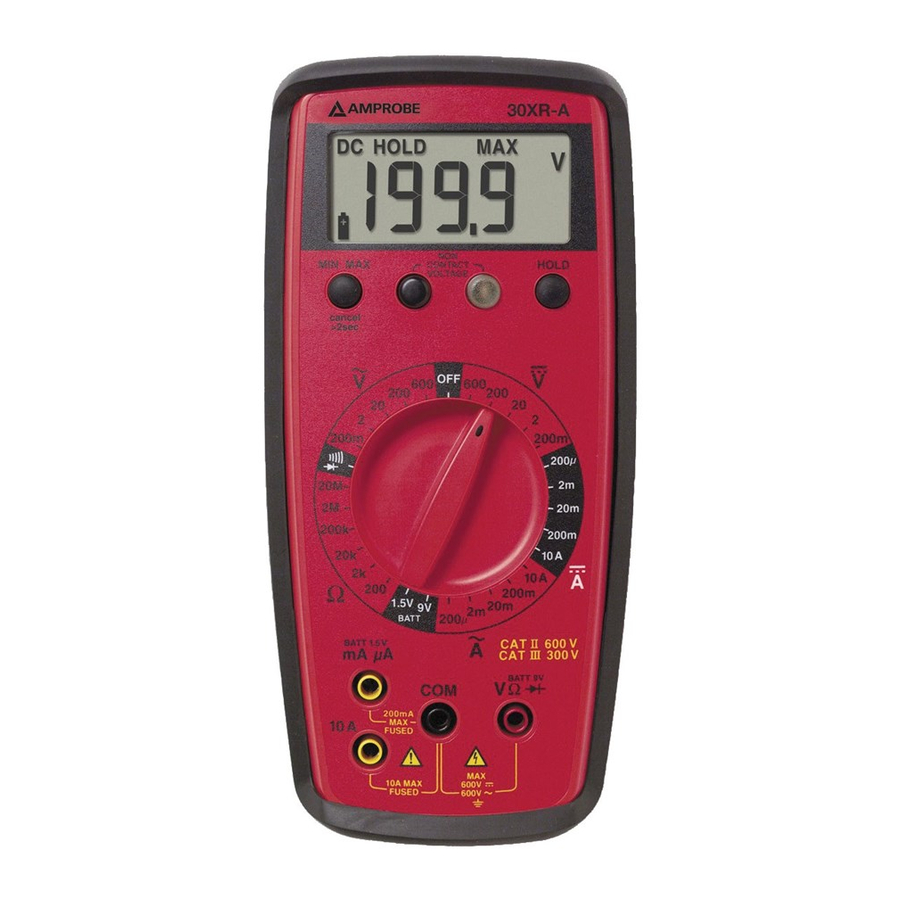- ページ 4
マルチメーター Amprobe 30XR-AのPDF ユーザーマニュアルをオンラインで閲覧またはダウンロードできます。Amprobe 30XR-A 14 ページ。 Professional digital multimeter
Amprobe 30XR-A にも: ユーザーマニュアル (14 ページ)

Symbols Used in this Manual
Battery
B
Double insulated
T
Direct Current
F
Alternating Current
B
Complies with EU directives
P
Fuse
I
Making Measurements
Verify Instrument Operation
Before attempting to make a measurement, verify that the instrument is operational
and the battery is good. If the instrument is not operational, have it repaired before
you attempting to make a measurement.
Correcting an Overload (0o) Indication W
An oor indication may appear on the display to indicate that an overload condition
exists. For voltage and current measurements, an overload should be immediately
corrected by selecting a higher range. If the highest range setting does not
eliminate the overload, interrupt the measurement until the problem is identified
and eliminated. The o indication is normal for some functions; for example,
resistance, continuity, and diode test.
Measuring DC Voltage
1. Set the Range Switch to an appropriate L range.
Select the highest range and work down if the voltage level is unknown.
2. Connect the Test Leads: Red to VΩG, Black to COM.
3. Connect the Test Probes to the circuit test points.
4. Read the display, and, if necessary, fix any overload (o) conditions.
Measuring AC Voltage
1. Set the Range Switch to an appropriate K range.
Select the highest range and work down if the voltage level is unknown.
2. Connect the Test Leads: Red to VΩG, Black to COM.
3. Connect the Test Probes to the circuit test points.
4. Read the display, and, if necessary, fix any overload (o) conditions.
Preparing for Current Measurements
•
Turn off circuit power before connecting the test probes.
•
Allow the meter to cool between measurements if current measurements
approach or exceeds 10 amps.
•
A warning tone sounds if you connect a test lead to a current input before you
select a current range.
•
Open circuit voltage at the measurement point must not exceed 600 V.
•
Always measure current in series with the load. Never measure current across
a voltage source.
Refer to the manual
W
Dangerous Voltage
X
Earth Ground
J
Audible tone
R
Underwriters
@
Laboratories, Inc
2
See Figure
-1-
See Figure
-2-
